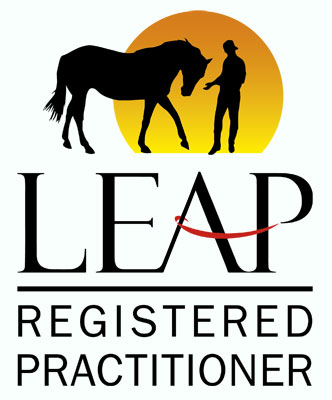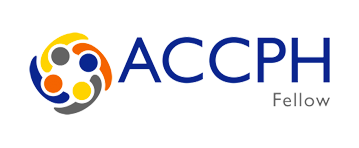
Blog
Myth Busting Series in The Equine Facilitated Industry. Myth No.1 ~ It's About the Horse
3 August 2016
This is the first in a series of articles addressing the many myths flying found today in the rapidly growing industry of Equine Facilitated/Assisted Practice.
These articles are designed to set minimum standards, set boundaries of acceptable practices, and raise the current levels of ethical, good practice.
Feel free to share among your networks, and please ensure you include the link to this website, thank you.
Myth No. 1: It’s About The Horse
Due to the involvement of horses and the historically close associations with horsemanship, all areas of Equine Facilitated Practice have mistakenly been viewed and approached as being very much about the horses.
Further, inevitably as horses are central to this method, the profession has historically attracted a wide range of horse lovers and equestrians. However, here is one of this industry's biggest challenges: equestrians do not necessarily also have the essential people skills to carry out this work. (It also attracts professionals more from the people-helping side who lack the necessary equine experience - but this will be covered in a separate article).
This is where we bust the first myth in this field:
It is not about the horse. It is instead, about the people, specifically, the clients and participants who come to you for support.
Therefore, the number one skill and area of experience needed by anyone wishing to enter this field, is to have substantial expertise and experience of supporting people through either a therapeutic or educational/learning/coaching process.
Let me explain why.
This process is about supporting other people through equine facilitated, or as I prefer to say, equine partnered, interventions.
It is not about horsemanship, natural horsemanship, horse-whispering, horse-care, horse-handling, horse training, dancing with horses, or complementary therapies for horses.
It is about personal or professional development, and/or therapy, and/or psychotherapy for people.
This is not to say that as the professional you don’t also need substantial knowledge, skill and experience of working with horses, as you definitely do, however we’ll address this in a later article to keep these issues clear and simple.
But this work is absolutely about the people.
Therefore, your first area of expertise and desire must be in supporting, guiding and coaching individuals and groups who are in a state of vulnerability in their growth, learning or therapy.
Further, as your four-legged partners are authenticity barometers, who greatly dislike the masks we all wear, no matter our professional position, your clients will be shedding layers of amour throughout the entire day, because of the nature of how horses are around humans. This naturally involves everyone entering a vulnerable state, where defenses are relaxed as self and team-reflections are encouraged.
Therefore, it is vital that you and your team are sensitive, adept and skilled at holding the space for this vulnerability to emerge, and therefore, for any learning and shifts to take place and achieve this method’s actual potential.
It is also the case, as my therapist and psychotherapist colleagues share with me regularly, that working alongside the horses can shift big things for their clients that would otherwise take years via talking therapy alone. Addicts, trauma survivors and those with other serious mental health issues, can reach levels of breakthroughs and healing far more rapidly with the help of the non-judgmental and hugely supportive horses, than otherwise unavailable to them.
Many people have contacted me over the years asking for advice on how to enter this field and where to go for training with a view to training themselves.
I simply say now, that if you do not have a background and preferably also a qualification, in working closely in a supportive capacity with people in either an educational, coaching, caring or therapeutic environment, then this type of work may not suitable for you. Remember: It is about the clients first and foremost.
I also reiterate that this work is not for the faint-hearted, as horses can take people into deep places during the very first or even a single session. Major wounds, illnesses, coping strategies and unhealthy relationship approaches can be revealed from the first moment the horse and client are in the same space.
It is therefore, vital, that as the facilitator, you are skilled and confident to deal with whatever issue arises for your client, from the first moment to the last.
Having only substantial equine experience or a love of horses is absolutely not sufficient to enable you to support such a client or group of clients, (which requires a whole other set of additional skills to facilitate groups safely and effectively).
Nowadays, too many people train to do this work too rapidly and without these fundamental skills and body of experience. They then rush-in to running group workshops and days, while lacking a solid ability to create the right space and deal with the myriad of complex group dynamics which get going before you’ve even finished registration.
I hope I have made clear through this article that this work is not about the horses. It is not about achieving a task with a horse, or learning different approaches to horsemanship. It is not about horse training.
It is, instead, about being able to support another human being in their most vulnerable and fragile states, with as much skill as you can muster, and with as little judgment as the horses embody for us.
Coming up next time: Busting Myth No.2: You don't need much horse experience to do Equine Facilitated Practice (!).
These ideas are explored in more depth in my new book: The Horse Leads The Way. Honoring the Role of the Horse in Equine Facilitated Practice. With foreword by Linda Kohanov. Available to buy now.
© Angela Dunning, 3 August, 2016. The Horse's Truth.
Equine Facilitated Learning, Supervision, Mentoring, Coaching & Training with Angela Dunning. Angela is an Eponaquest EFL Facilitator who has been working in this field for over a decade.








